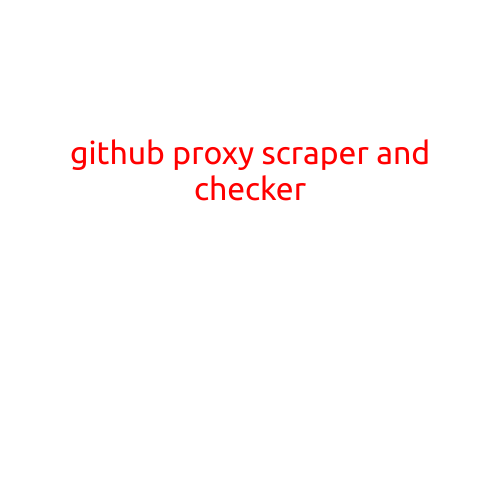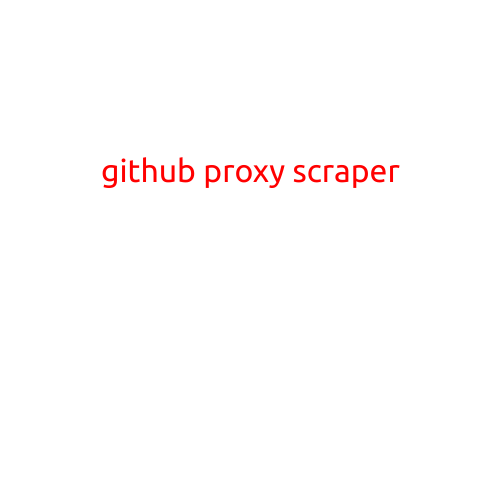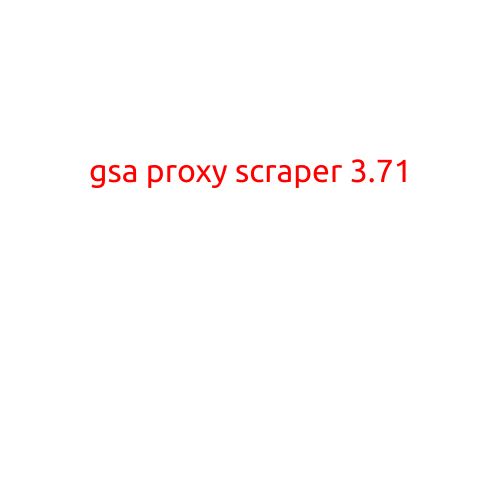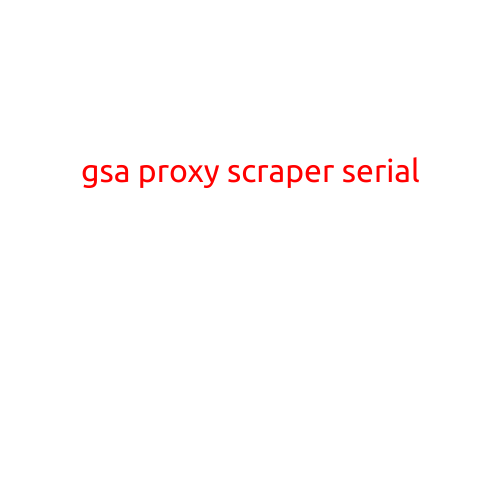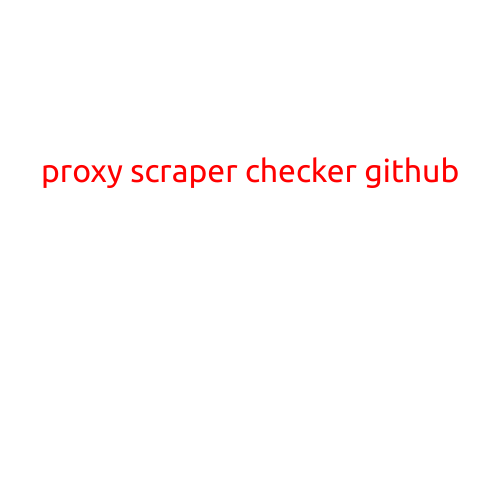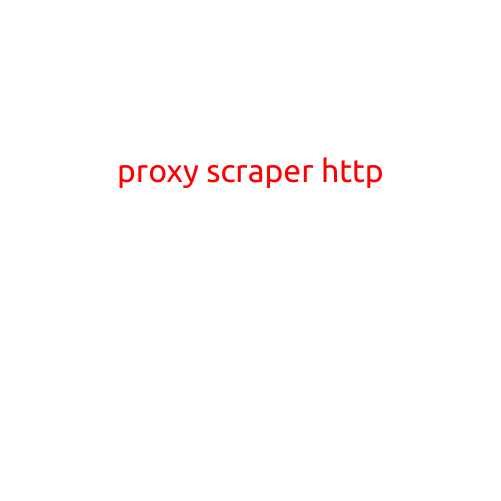
Proxy Scraper HTTP: A Powerful Tool for Web Scraping and Data Extraction
In today’s digital age, data is more valuable than ever. Businesses, researchers, and individuals are constantly seeking ways to extract and analyze data from the web. One effective way to do this is through web scraping, a technique that involves automatically extracting data from websites using specialized software. However, web scraping can be a challenging and time-consuming process, especially when dealing with websites that have complex security measures in place. This is where proxy scrapers come in handy. In this article, we will explore what proxy scrapers are, how they work, and why they are essential for web scraping.
What is a Proxy Scraper?
A proxy scraper is a type of web scraping tool that uses a proxy server to access websites and extract data. A proxy server acts as an intermediary between a web scraping program and the website being scraped. By using a proxy server, web scrapers can bypass website restrictions and limitations, such as CAPTCHAs and rate limits, and collect large amounts of data quickly and efficiently.
How Does a Proxy Scraper Work?
Here’s how a proxy scraper works:
- Proxy Server: The proxy scraper connects to a proxy server, which acts as a middleman between the web scraping program and the website being scraped.
- Request: The web scraping program sends a request to the proxy server to access a specific website.
- Proxy Server: The proxy server receives the request and forwards it to the target website, making it appear as if the request came from the proxy server, rather than the web scraping program.
- Data Extraction: The web scraping program extracts the desired data from the website using a scraping algorithm.
- Proxy Server: The proxy server sends the extracted data back to the web scraping program.
Benefits of Using a Proxy Scraper
Proxy scrapers offer several benefits, including:
- Increased Speed: Proxy scrapers allow web scrapers to access websites faster and more efficiently, as they can bypass website restrictions and limitations.
- Improved Data Quality: Proxy scrapers ensure that data is extracted accurately and completely, without errors or incomplete data.
- Enhanced Security: Proxy scrapers protect web scrapers from being detected and blocked by websites, reducing the risk of IP bans and other security threats.
- Scalability: Proxy scrapers enable web scrapers to scale their operations quickly and easily, making it possible to extract large amounts of data rapidly.
Types of Proxy Scrapers
There are several types of proxy scrapers available, including:
- Rotating Proxies: These proxies change IP addresses regularly to avoid detection and minimize the risk of IP bans.
- Socks Proxies: These proxies provide a TCP/IP connection to a proxy server, allowing web scrapers to access websites through a secure and anonymous connection.
- HTTP Proxies: These proxies provide HTTP connections to proxy servers, allowing web scrapers to access websites through a secure and anonymous connection.
Conclusion
Proxy scrapers are a powerful tool for web scraping and data extraction. By using a proxy scraper, web scrapers can bypass website restrictions and limitations, extract data quickly and efficiently, and ensure the quality and accuracy of their data. Whether you’re a business, researcher, or individual, a proxy scraper can help you extract the data you need to make informed decisions and stay ahead in your field.

